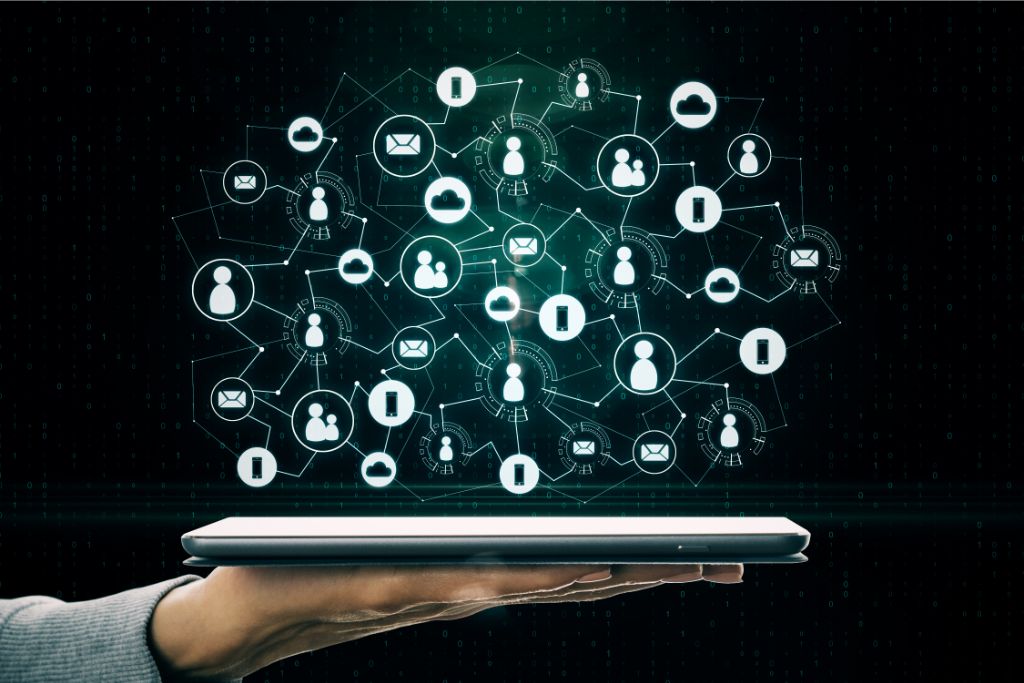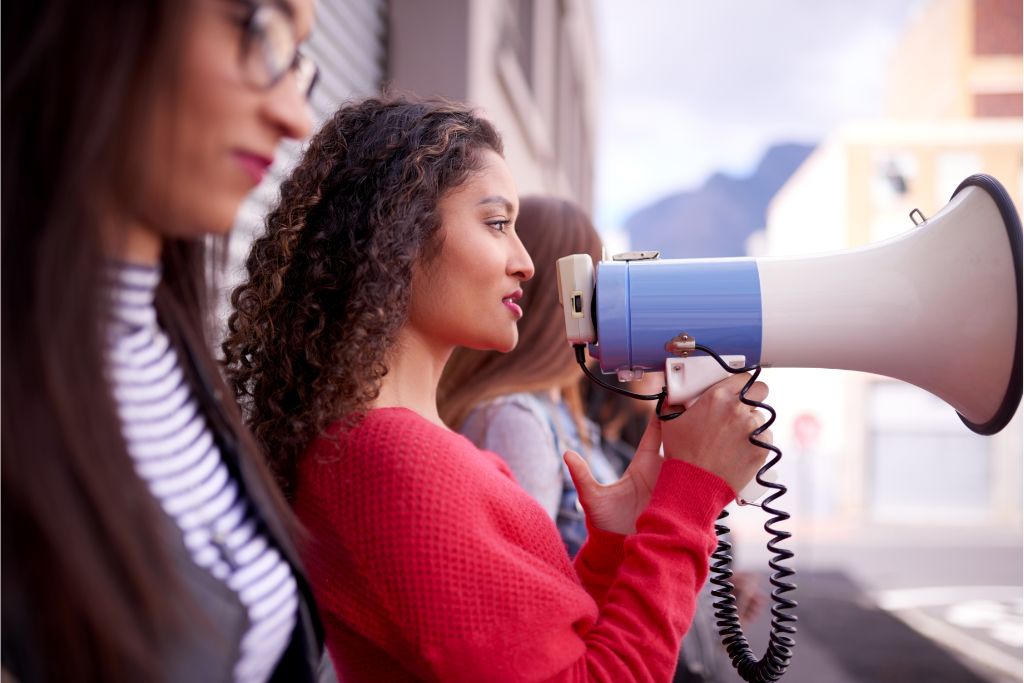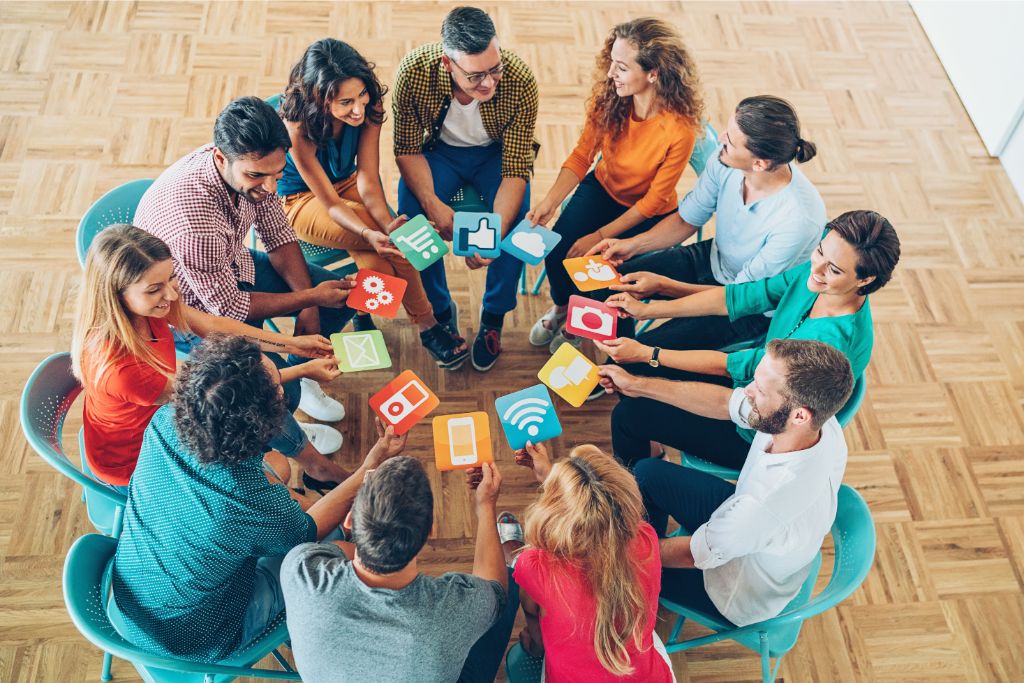Social media has become essential to our modern society, with billions of users worldwide. Despite its reputation for adverse effects like addiction and cyberbullying, let’s not overlook the countless positive outcomes that social media brings.
In this article, we want to open your eyes to ten lesser-known benefits social media offers. By delving into its power to enhance communication and foster connections, provide access to valuable information and educational resources, facilitate global networking and collaboration, empower marginalized voices and social movements, support mental health and raise awareness, engage communities and fuel activism, promote cultural exchange and understanding, ignite creativity and self-expression, and aid in disaster response and emergency communication, we aim to show you just how versatile and advantageous social media can be in improving your everyday life.
Table of Contents
- 1 Enhanced Communication and Connectivity
- 2 Increased Access to Information and Educational Resources
- 3 Facilitated Global Networking and Collaboration
- 4 Empowerment of Marginalized Voices and Social Movements
- 5 Improved Mental Health Support and Awareness
- 6 Enhanced Business Opportunities and Entrepreneurship
- 7 Strengthened Community Engagement and Activism
- 8 Increased Cultural Exchange and Understanding
- 9 Enhanced Creativity and Self-Expression
- 10 Improved Disaster Response and Emergency Communication
- 11 BONUS
- 12 Frequently Asked Questions
- 12.1 How Does Social Media Contribute to the Empowerment of Marginalized Voices and Social Movements?
- 12.2 What Role Does Social Media Play in Strengthening Community Engagement and Activism?
- 12.3 How Does Social Media Enhance Creativity and Self-Expression?
- 12.4 Can You Provide Examples of How Social Media Has Improved Disaster Response and Emergency Communication?
- 12.5 In What Ways Does Social Media Facilitate Global Networking and Collaboration?
Enhanced Communication and Connectivity

Enhanced communication and connectivity are observed as significant positive effects of social media. Social media platforms have revolutionized communication and interaction, improving relationships and a significant social impact.
One of the main advantages of social media is its ability to connect individuals from different parts of the world instantaneously. Through platforms like Facebook, Twitter, and Instagram, people can easily stay in touch with friends, family members, and even acquaintances they might not have been able to communicate with otherwise. This increased connectivity allows individuals to maintain relationships despite physical distance or time constraints.
Moreover, social media has also played a vital role in fostering new connections and expanding networks. Online communities centered around shared interests or hobbies bring together like-minded individuals from diverse backgrounds. These virtual spaces provide opportunities for collaboration, support, and exchanging ideas that can lead to personal growth and professional development.
The social impact of enhanced communication through social media cannot be overstated. It has allowed marginalized voices to be heard and amplified on essential issues such as human rights abuses, gender equality, climate change, and more. Additionally, it has facilitated the spread of information during times of crisis or emergencies where traditional communication channels may be limited.
Increased Access to Information and Educational Resources

The advent of social media has led to a significant expansion in educational opportunities, particularly for those who may not have had access to traditional forms of education. Online platforms and resources allow individuals to learn new skills, acquire knowledge, and engage in intellectual discussions without time or location constraints.
Furthermore, social media has made information sharing more accessible than ever before, enabling individuals from diverse backgrounds to exchange ideas and perspectives on a global scale. This increased access to educational resources and information sharing has the potential to democratize learning and foster more incredible intellectual growth and development.
Educational Opportunities Expanded
Expanded educational opportunities are one of the positive effects that social media offers. With the advent of social media platforms, individuals can access many learning resources and online courses.
The internet has revolutionized traditional education by providing a platform for expanded learning beyond the confines of physical classrooms. Online courses offer flexibility in terms of time and location, allowing individuals to access educational content conveniently.
Social media further enhances this accessibility by serving as a platform for educators and institutions to share their knowledge and expertise with a broader audience. Through social media, learners can engage in discussions, collaborate with peers, and receive feedback from experts in various fields.
Expanding educational opportunities promotes lifelong learning and empowers individuals to acquire new skills and knowledge regardless of their geographical location or socio-economic background.
Information Sharing Made Accessible
Information sharing is made more accessible through social media platforms, as they provide a convenient and efficient means for individuals to disseminate knowledge and exchange information. These platforms enable digital collaboration, allowing users to connect and share ideas with a global audience instantly. The ability to easily create and share content on social media fosters an environment conducive to knowledge dissemination. Users can upload articles, videos, or infographics that can be accessed by others interested in the same topic. Furthermore, social media allows real-time discussions and feedback, encouraging active user engagement. This enables a dynamic exchange of ideas that transcends geographical boundaries. Social media platforms facilitate information sharing and promote digital collaboration in today’s interconnected world.
| Pros | Cons |
|---|---|
| Easy access to information | Potential for misinformation |
| Global reach | Privacy concerns |
| Real-time discussions | Information overload |
| Active engagement among users | Digital divide |
This table highlights the positive aspects of information sharing through social media (pros) and some potential drawbacks (cons). While social media offers easy access to information and facilitates real-time discussions, it also presents challenges such as misinformation and privacy concerns. Additionally, the abundance of available information can lead to an overload for users. However, despite these drawbacks, when used responsibly and critically evaluated, social media remains a powerful tool for knowledge dissemination and digital collaboration on a global scale.
Facilitated Global Networking and Collaboration

The widespread use of social media platforms has facilitated global networking and collaboration in the digital age. These platforms offer a range of tools and features that enable individuals, organizations, and communities to connect globally. Social media provides an accessible and efficient means for people worldwide to collaborate, share ideas, collaborate on projects, and build meaningful relationships.
One of the key advantages of social media is its ability to break down geographical barriers. It allows individuals to connect with others who share similar interests or professional goals regardless of their physical location. This opens up a world of possibilities for global collaboration, as it brings together diverse perspectives and expertise from across the globe.
Moreover, social media offers various networking opportunities by providing users with platforms specifically designed for professional connections. For example, LinkedIn enables professionals to showcase their skills and experiences while connecting with potential employers or business partners. These platforms also facilitate knowledge sharing through discussion groups and forums where industry experts can exchange ideas and insights.
Empowerment of Marginalized Voices and Social Movements

This discussion will explore how social media platforms have amplified marginalized voices and catalyzed social change.
Through hashtags, viral campaigns, and online communities, individuals who have historically been silenced or ignored can now share their experiences and perspectives on a global scale.
Amplifying Marginalized Voices
The amplification of marginalized voices is a notable positive effect of social media. It provides an inclusive platform for individuals from underrepresented communities to express their perspectives and advocate for social change.
Social media platforms have the potential to amplify the voices of those who are often overlooked or silenced in mainstream spaces. By enabling individuals to share their experiences and opinions with a broader audience, social media empowers them to challenge dominant narratives and bring attention to important issues that affect their communities.
This amplification can increase visibility, awareness, and support for marginalized groups, ultimately contributing to greater societal understanding and progress toward achieving equality and justice.
Furthermore, social media fosters community and solidarity among marginalized individuals by providing a space where underrepresented voices can be heard and validated. This further strengthens their collective efforts for empowerment.
Catalyst for Social Change
One significant outcome of social media’s role as a catalyst for social change is its ability to mobilize large numbers of individuals toward collective action, fostering a sense of empowerment and providing a platform for marginalized communities to advocate for their rights.
Social media platforms have had a profound cultural impact by enabling marginalized groups to share their experiences and perspectives on various social justice issues. Through hashtags, viral campaigns, and online organizing, social media has facilitated the spread of information and increased awareness about systemic inequalities.
It has also allowed individuals from different backgrounds to unite in solidarity, creating virtual communities that amplify marginalized voices and challenge the status quo.
Improved Mental Health Support and Awareness
Social media platforms facilitate improved mental health support and awareness through various available tools and resources. Social media has emerged as a powerful tool for promoting mental health awareness and providing support services to needy individuals. Here are three ways in which social media contributes to improved mental health support:
- Information dissemination: Social media platforms allow users to access and share information about mental health conditions, symptoms, treatment options, and available support services. This widespread availability of information helps raise awareness among individuals experiencing mental health challenges or those seeking to understand and support loved ones.
- Online communities: Social media provides a platform for individuals with similar experiences or struggles to connect, creating virtual communities where they can seek advice, share stories, and find comfort in knowing they are not alone. These online communities foster a sense of belonging and enable individuals to form supportive relationships with others who understand their challenges.
- Crisis intervention: Many social media platforms have implemented features that enable users to report concerning posts or express distress. These features often trigger algorithms that flag the content for review by trained professionals who can intervene if necessary, offering immediate assistance or referring the individual to appropriate helplines or resources.
Social media improves mental health support and awareness by providing accessible information, fostering supportive communities, and enabling timely crisis intervention.
Enhanced Business Opportunities and Entrepreneurship

The rise of social media platforms has significantly enhanced business opportunities and entrepreneurship by providing access to a global market. With billions of users worldwide, businesses can reach a broader audience and expand their customer base beyond geographical boundaries.
Additionally, social media offers increased customer engagement through features like comments, likes, and direct messaging, allowing businesses to interact with their customers in real-time and build stronger relationships.
Furthermore, social media platforms provide cost-effective advertising options compared to traditional marketing strategies, enabling businesses to reach potential customers at a fraction of the cost.
Accessible Global Market
The use of social media facilitates accessible global markets. This powerful platform enables businesses to expand their reach beyond traditional boundaries and tap into a vast audience worldwide. Here are three key ways in which social media enhances accessibility to global markets:
- Increased visibility: Social media platforms allow businesses to showcase their products or services to a global audience. By creating engaging content, utilizing relevant hashtags, and leveraging influencers, organizations can gain significant exposure and attract potential customers worldwide.
- Direct communication: Social media allows businesses to engage directly with their target audience, irrespective of geographical barriers. Through features like comments, direct messages, and live chats, companies can interact with customers in real time, addressing queries, providing support, and building relationships.
- Cost-effective advertising: Unlike traditional marketing channels that require substantial financial investments for international campaigns, social media offers cost-effective advertising options. Businesses can promote their offerings through targeted ads on platforms like Facebook and Instagram at a fraction of the cost compared to other forms of advertising.
Increased Customer Engagement
Enhanced customer engagement is a significant outcome resulting from using social media platforms in global markets. Social media has revolutionized the way businesses interact with their customers, allowing for increased customer satisfaction and improved brand loyalty. By leveraging social media, companies can engage with their customers more personally, offering tailored content and responding to real-time inquiries. This creates a sense of connection and trust between the brand and its consumers, increasing customer satisfaction. Additionally, social media provides a platform for customers to share their positive experiences with others, amplifying brand awareness and fostering brand loyalty. The table below highlights some key ways in which social media enhances customer engagement:
| Key Benefits | Description |
|---|---|
| Personalized Content | Companies can create targeted content based on user preferences, ensuring that customers receive information relevant to their needs. |
| Real-Time Interactions | Social media allows for immediate communication between brands and customers, enabling prompt responses to inquiries or concerns. |
| Word-of-Mouth Marketing | Positive experiences customers share on social media platforms can reach a wider audience, increasing brand visibility and trust. |
In conclusion, incorporating social media into global marketing strategies can significantly enhance customer engagement through personalized content delivery, real-time interactions, and word-of-mouth marketing efforts.
Keywords: increased customer satisfaction, improved brand loyalty
Cost-Effective Advertising Options
Increased customer engagement on social media platforms can lead to various business benefits. One of these benefits is the opportunity for cost-effective marketing through targeted advertising. Social media platforms allow businesses to reach a large audience with minimal costs compared to traditional forms of advertising.
Here are three reasons why targeted advertising on social media is a cost-effective marketing strategy:
- Precise targeting: Social media platforms provide advanced targeting options, allowing businesses to reach specific demographics, interests, and behaviors. This precision ensures that advertisements are seen by individuals more likely to be interested in the products or services offered.
- Customizable budgeting: Businesses control their advertising budgets on social media platforms and can set daily limits or allocate funds based on performance metrics such as clicks or conversions. This flexibility allows businesses to optimize their spending and maximize their return on investment.
- Measurable results: Social media platforms provide detailed analytics that allows businesses to track the effectiveness of their advertisements in real time. This data enables businesses to make data-driven decisions, refine their strategies, and allocate resources more efficiently.
Strengthened Community Engagement and Activism
Fostered by social media platforms, community engagement and activism have experienced a notable resurgence, enabling individuals to connect with like-minded individuals and mobilize for social causes. The power of social media in facilitating community building and enhancing civic participation cannot be overlooked. Individuals can form virtual communities through online platforms centered around shared interests or causes. These communities provide a space for members to exchange ideas, collaborate on projects, and support one another in their endeavors.
One key advantage of social media is its ability to transcend geographical boundaries. People can connect with others worldwide who share similar passions or concerns. This global reach allows for diverse perspectives to converge and contribute to discussions on important issues. Furthermore, social media provides a platform for marginalized voices who may not have access to traditional avenues of participation.
Table: Benefits of Social Media in Community Engagement
| Community Building | Civic Participation |
|---|---|
| Facilitates connections among like-minded individuals | Enables collective action toward social causes |
| Fosters the formation of virtual communities | Amplifies marginalized voices |
| Provides a platform for collaboration and support | Encourages dialogue and diverse perspectives |
Increased Cultural Exchange and Understanding
Facilitating cultural exchange and understanding is a significant outcome of social media platforms, allowing individuals to engage with diverse perspectives and gain insight into different cultures. This has several positive effects on society:
- Increased Cultural Awareness: Social media provides a platform for people from different cultural backgrounds to share their experiences, traditions, and customs. Users can expand their knowledge and understanding of cultural diversity by following individuals or groups representing various cultures.
- Cross-Cultural Collaboration: Social media enables people worldwide to connect and collaborate on projects or initiatives that promote cultural exchange. This can create innovative ideas, solutions, and artworks that fuse multiple cultural influences.
- Breaking Down Stereotypes: Through social media interactions, individuals can challenge stereotypes by conversing with people from different cultures. These conversations help debunk misconceptions and foster empathy, leading to more inclusive societies.
Social media platforms have the power to bridge geographical barriers and bring people from diverse backgrounds together. By facilitating cultural exchange and understanding, they contribute towards creating a more interconnected global community that values diversity and promotes cross-cultural collaboration.
Enhanced Creativity and Self-Expression
Enhanced creativity and self-expression are notable outcomes of social media platforms. Individuals are provided with a medium to share their unique ideas and perspectives. Social media has revolutionized the way people express themselves artistically, offering new avenues for creative expression that were previously inaccessible. Through platforms like Instagram, YouTube, and TikTok, individuals can showcase their artistic abilities in various forms, such as photography, painting, music, dance, and more.
Social media allows artists to reach a wider audience, breaking geographical barriers and connecting individuals worldwide with similar creative interests. This exposure enhances artistic expression and fosters cultural exchange and understanding. Artists can draw inspiration from diverse cultures and incorporate these influences into their work.
Moreover, social media provides a supportive community where artists can receive feedback and encouragement from peers and admirers. This positive reinforcement helps boost self-confidence in one’s artistic abilities. By sharing their creations on social media platforms, individuals gain validation for their work, further motivating them to explore new ideas and push the boundaries of their creativity.
Improved Disaster Response and Emergency Communication
Improved disaster response and emergency communication are significant outcomes social media facilitates. The widespread adoption of social media has transformed how information is disseminated during times of crisis, leading to more effective emergency response efforts.
- Real-time information sharing: Social media allows individuals to share updates, photos, and videos in real time, providing immediate situational awareness to both authorities and the public. This enables faster decision-making and coordination among responders.
- Crowd-sourced assistance: During disasters, social media platforms serve as a hub for connecting those in need with volunteers offering help. This crowd-sourcing of resources and aid can significantly enhance emergency response capabilities, especially in areas where traditional systems may be overwhelmed.
- Public engagement and education: Social media allows government agencies and organizations to engage with the public before, during, and after emergencies. Using these platforms, authorities can effectively disseminate important safety messages, evacuation instructions, and preparedness tips to a broad audience.
BONUS
Optimize your social media impact with OnlySocial’s essential Post Planning and Scheduling function. Seamlessly plan and schedule your posts across all social networks, ensuring consistent and strategic content delivery. With unlimited posting and the ability to manage unlimited social profiles, you can expand your online presence without limitations. Don’t miss out on maximizing the positive effects of social media. Sign up for a commitment-free 7-day trial today.
Frequently Asked Questions
How Does Social Media Contribute to the Empowerment of Marginalized Voices and Social Movements?
Social media has been instrumental in empowering marginalized voices and social movements. It provides a platform for individuals to share their experiences, raise awareness, and mobilize support globally, challenging traditional power structures and amplifying underrepresented perspectives.
What Role Does Social Media Play in Strengthening Community Engagement and Activism?
Social media catalyzes community building and grassroots organizing, fostering engagement and activism. Its virtual platform connects individuals across geographical boundaries, amplifying voices and facilitating collective action toward social change.
How Does Social Media Enhance Creativity and Self-Expression?
Social media enhances creativity and self-expression by providing a platform for individuals to showcase their talents, share ideas, and receive feedback. It also allows for personal branding, enabling users to curate an online identity that aligns with their creative pursuits and aspirations.
Can You Provide Examples of How Social Media Has Improved Disaster Response and Emergency Communication?
Social media has proven to play a significant role in improving disaster response and emergency communication. It enhances information sharing during crises, allowing for real-time updates, coordination of resources, and mobilization of support, ultimately saving lives and minimizing damage.
In What Ways Does Social Media Facilitate Global Networking and Collaboration?
Social media facilitates global networking and collaboration by connecting individuals across geographical boundaries, allowing for exchanging ideas, information, and resources. This enhances communication and enables collective problem-solving on a global scale.




